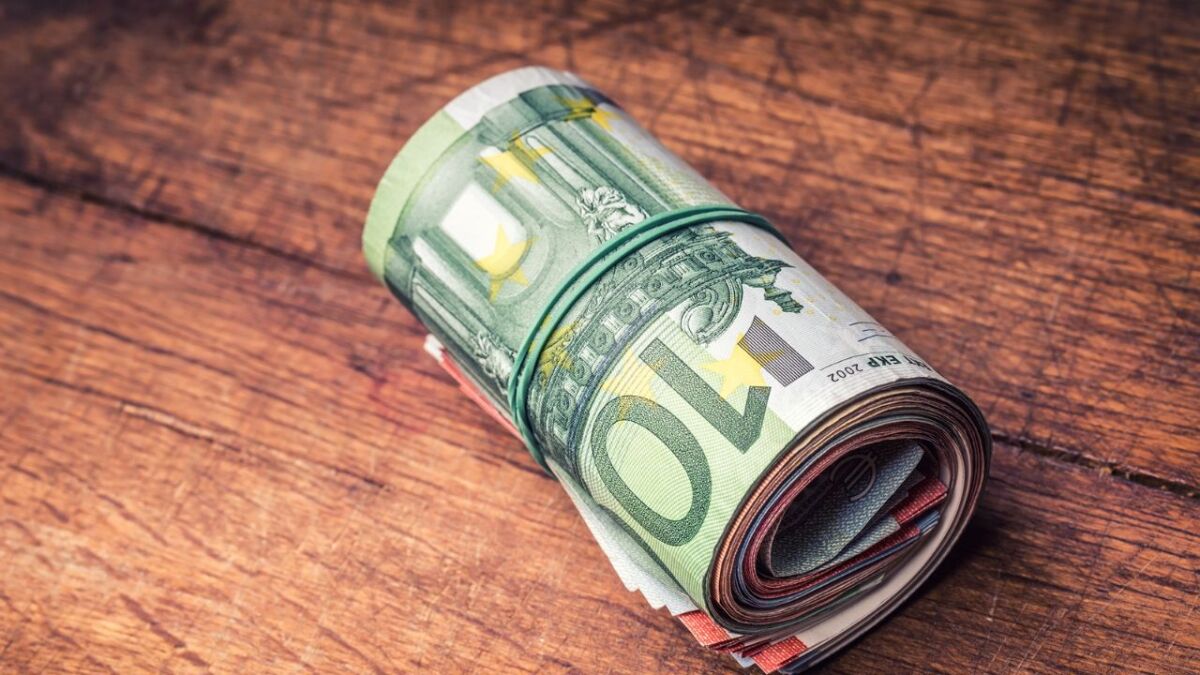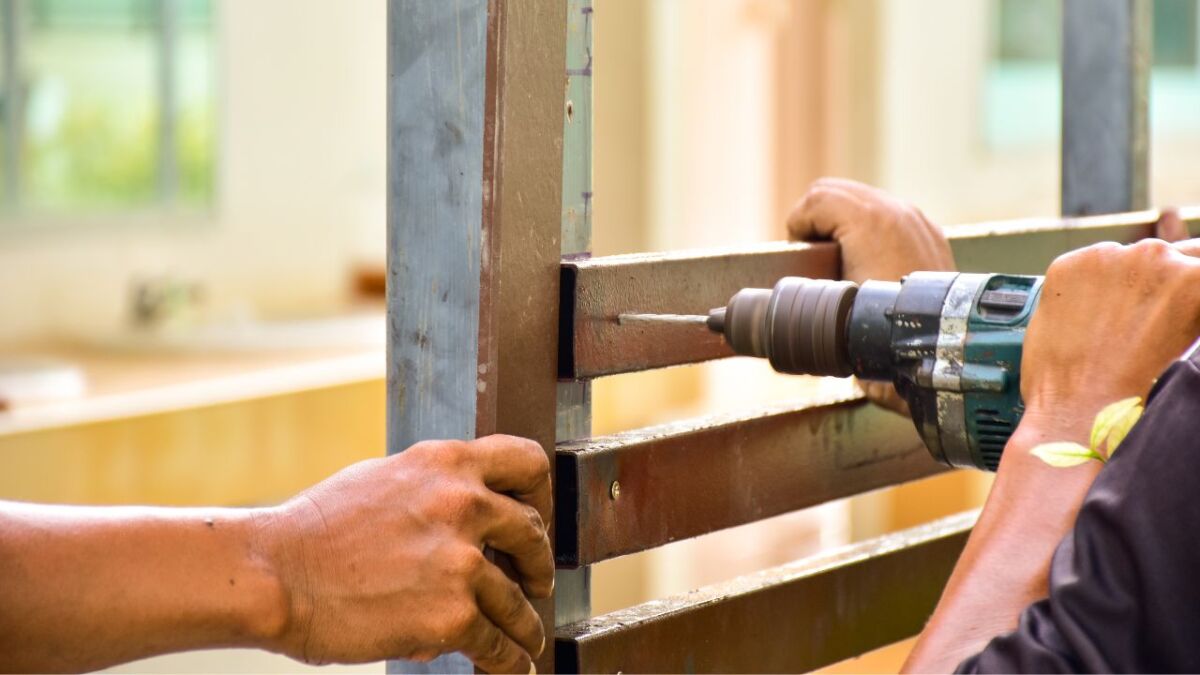
19 money-saving tips from survivors of the global economic crisis
👉 The key facts from this guide
- Strong family ties: During the global economic crisis, families came closer together and lived together to save costs.
- Home insulation: People used clothing, pillows, blankets, and other materials for insulation to save on heating costs.
- Avoid unnecessary expenses: It is important to monitor expenses and avoid unnecessary spending, especially in times of financial stress.
- Buy (almost) expired food: Many foods are still consumable even after their expiration date. This can be a cost-effective way to acquire food.
- Opt for affordable protein sources: Meat is often expensive, so it is advisable to opt for cheaper protein sources such as eggs, curd, and cheese.
- Learn how to bake and garden: Baking your bread and growing your vegetables can save money and is often healthier.
I am always striving to keep my finances under control.
And every time I realize: there are so many little things you can do to save money.
But sometimes it's hard to know where to start and what specific steps to take.
So I thought, I'll research saving tips from people who have survived the world economic crisis and ask my grandparents.
I mean, if anyone knows how to cleverly use scarce resources, it's these people.
So here are 19 saving tips from real survivors of the world economic crisis.
Surviving in economically difficult times - what can we learn?
On average, we are quite wealthy and spoiled in today's society.
- Getting a job is generally not too difficult.
- Social benefits are available for those who need and ask for them.
- We have numerous luxury goods available for purchase in supermarkets.
Great, or is it?
Well, generally the above statement may be true, but there are - especially in today's times - some risks and instabilities that threaten our prosperity and wealth.
Energy crises, or a constantly increasing inflation mean that some citizens are getting closer and closer to the poverty line.

Money is worth less, despite rising costs. A dilemma! Maybe you feel the same way?
However, this is by no means a unique dilemma that has never existed before - quite the opposite.
Do you know what the "Great Depression" was? Let me refresh your memory: It was a severe economic crisis that began in the United States on October 24, 1929 with the so-called "Black Thursday."
It dominated the American economy until the 1930s and drove numerous US citizens into unemployment and bitter poverty.
It also marked the beginning of the great recession, the great global economic crisis, which also affected Germany. However, the economy managed to recover over time.
The following tips and tricks in this article come from survivors of the global economic crisis who share their rich wealth of experience.
This way, you can expand your knowledge in tough times like these and learn what you can do when finances get really tight.
1. Strong Family Ties
You may have noticed that most families today no longer live together over time, and especially children are encouraged to move out quickly to stand on their own two feet.
While this may have its advantages, it is by no means a promising way to save money.

During the Great Depression, families came closer together and increasingly shared a home to save costs and find work.
Living together as a family saves primarily these things:
- Rent
- potential travel costs
- electricity/gas/oil
- accessories
- supplies, etc.
Instead of everyone financing themselves, a joint family fund can take care of that.
But not only the financial aspect can help you in such a situation. During the Great Depression, it was important to have a reliable community around you who could catch you and take care of you in case of emergency. By doing so, these hard times could be overcome together.
2. Home insulation for warmth
Especially in the cold season, it is important to have adequate warmth in your own four walls.
With continuously rising heating costs, this can hurt your wallet over time. Fortunately, there are cost-effective alternatives that at least contribute greatly to keeping the heat in the house where it is needed.
During the Great Depression, people mainly used clothing, pillows, blankets, and other materials suitable for insulation for this purpose.

This point is not about generating additional warmth, but about two important points:
- keeping already generated heat in the house
- preventing cold air from outside from entering the house
You can use anything possible to advance your insulation. But be careful: even if it seems counterproductive in this context, do not forget to ventilate regularly.
Once you have done this, close all windows and doors tightly, insulate them, and thus quickly warm up the room again.
Read also
9 ways to stay warm without electricity or heating - Has your heating gone out? No electricity either? Then read these 9 tips to learn how to stay warm in your house without electricity or heating.
3. Avoid unnecessary expenses
Think carefully about whether you really need everything before you buy it.
In times of stress, it's more important than ever to keep an eye on your spending and avoid unnecessary expenses.
While it may be tempting to reward yourself with quick luxuries, it's important to realize that every unnecessary expense costs money that you might need more urgently in the future.
One way to avoid unnecessary expenses is to ask yourself the question whether you really need the product before every purchase.

Often, we buy things because they are trendy or fashionable without really thinking about whether we actually need them. By consciously choosing to only buy the things you really need, you can save a lot of money.
Another way to avoid unnecessary expenses is to realize that there are often cheaper alternatives to expensive products. Instead of a pricey designer item, for example, you can also buy a well-made second-hand piece that looks just as good and costs much less.
In the Great Depression of the 1930s, many people learned how important it is to pinch every penny. By learning to avoid unnecessary expenses and use your money wisely, you too can survive financially in difficult times and prepare for a better future.
4. Buy (almost) expired food
It's not without reason that it's called "best before" and not "deadly by", right?
You can still consume many foods even after their expiration date without any problems. However, you should of course still pay attention to the quality of the food. Spoiled food is disposed of, no matter what the best before date says.

Just like back then, you can still find special offers on almost expired food in all supermarkets today.
The price of these foods is significantly lower than the average, making them affordable even in times of financial crisis. And isn't it better for someone to buy and use the food before it's thrown away?
So don't be deterred by the best before date, but use it to your advantage!
Pro Tip: You can also freeze products that are almost expired. This even works with meat and I have never had any problems with it.
5. Use affordable sources of protein
The most common and frequently consumed source of protein nowadays is meat.
Whether it's beef or chicken, meat provides you with the optimal supply of valuable protein. However, meat can be relatively expensive, which is unlikely to improve, and may even get worse during an economic crisis.
Nevertheless, you should always ensure that the protein supply for you and your family is ensured and remains so.

So, if you want to save money on protein, go for cheaper sources like eggs, cottage cheese, cheese, or cheaper meat variations. I know it can be painful to cut down on nutrition. But as described in the previous section – cheap doesn't mean low quality!
If you want to learn more about valuable and cheap protein sources that you can use in case of emergencies, check out my article: The 11 best protein sources for emergencies.
6. Learn how to bake
Don't worry, I'm not asking you to become a professional baker or pastry chef, open your own shop, and improve your financial situation that way.
However, I encourage you to try making your own bread. It's easier than you think, and you can find recipes on the internet like sand in the sea.

Furthermore, you can save a lot of money that way. Bread from the bakery used to be and is still relatively expensive today.
On the other hand, you can make your own bread cheaply and still with high quality. Besides, with self-made bread, you always know exactly what's in it.
Read more: This pan bread is quick and tastes exceptional.
7. Learn how to garden
If you've already looked around my blog a bit, then you've probably noticed that the independent cultivation of nutritional plants, herbs, and spices is absolutely nothing unusual.

It's hardly surprising, therefore, that even the survivors of the world economic crisis used this method of self-sufficiency.
Whether you want to grow herbs, fruit, or vegetables - with every self-grown plant, you save real money that you would have otherwise spent in the supermarket. Just like with self-baked bread, you know exactly what's in it!
Also read
16 quickly growing vegetable plants to grow in a crisis (emergency food from the garden) - When the supermarket shelves are empty due to a crisis, it's better to grow your own vegetables. Here are 16 great, quickly growing vegetable plants.
8. Use homemade cleaning agents
Cleaning agents for dishwashing, window cleaning or floor mopping are often quite expensive.
If you want to maintain basic hygiene, you are, however, also dependent on them. But here too, the survivors of the world economic crisis knew a few tricks and tips to save money!

You can use many different types of homemade cleaning products to keep your home clean and hygienic. Here are some examples:
- All-purpose cleaner: Make an all-purpose cleaner by adding water, vinegar, lemon juice, and a few drops of a natural cleaner (such as lemon oil or tea tree oil) to a spray bottle.
- Window cleaner: To make a window cleaner, you could add water, vinegar, and a little dish soap to a spray bottle. You could also add lemon juice to create a pleasant smell.
- Toilet cleaner: You could make a toilet cleaner by adding baking soda and white vinegar to the toilet and letting it sit for a few hours or overnight. Then you can simply flush the toilet.
- Carpet cleaner: To remove stains from carpets, you could make a paste of baking soda and water and apply it to the stain. Let the paste sit before thoroughly brushing or vacuuming it out.
- Disinfectant: You could make a disinfectant by adding water, alcohol (at least 60% volume), and a few drops of a natural cleaner (such as tea tree oil or lemon oil) to a spray bottle. This cleaner is especially good for disinfecting surfaces that are frequently touched by people, such as doorknobs and faucets.
- Lime scale remover: For example, for the water kettle? Add citric acid and boil the water. You will be surprised how your water kettle shines from the inside.
9. Become a real soup connoisseur
During the Great Depression, a particular type of food became especially popular: soup.
Soups are warm, can be filling, and are quite cheap as they consist mostly of water. An important advantage of soup is also that you can process and prepare almost anything into a delicious soup.

Even the ready-made packages from the supermarket last quite a while these days, which is why it's worth stocking up on supplies.
If you're skilled in the process, you can also independently process food into powder to give your soup the desired flavor.
Here are three simple soup recipes that can be prepared with cheap ingredients:
- Chickpea Soup: You need a can of chickpeas, a can of tomatoes, an onion, a garlic clove, a few sprigs of fresh cilantro, a pinch of turmeric, a pinch of chili, and some olive oil. First, sauté the onion and garlic in some olive oil, add the chickpeas and tomatoes and let it simmer for a few minutes. Then add some water to achieve the desired soup consistency and season the soup with turmeric, chili, and cilantro. You can also serve the soup with some rice or couscous.
- Carrot Lentil Soup: You need a few carrots, a can of lentils, an onion, a garlic clove, a few sprigs of fresh dill, a pinch of turmeric, a pinch of cinnamon, and some olive oil. First, sauté the onion and garlic in some olive oil, add the carrots and let it simmer for a few minutes. Then add the lentils and some water and season the soup with turmeric, cinnamon, and dill. You can also refine the soup with some cream or yogurt.
- Potato Soup: You need a few potatoes, an onion, a garlic clove, a few sprigs of fresh rosemary, a pinch of nutmeg, a pinch of pepper, and some olive oil. First, sauté the onion and garlic in some olive oil, add the potatoes and let it simmer for a few minutes. Then add some water to achieve the desired soup consistency and season the soup with rosemary, nutmeg, and pepper. You can also serve the soup with some cheese or croutons.
10. Stretching Your Food Dollar
During the Great Depression, it was essential to save every penny.
So if you want to get more out of drinks like milk or fruit juices, you could dilute them with water. If you ever find yourself in a financial situation, this method can help reduce your expenses.
Here are some foods that can be diluted with water to save money, and how to use them:
- Milk: Don't worry, I'm well aware that adding water to milk doesn't enhance the flavor - and honestly, it doesn't. However, this method can make your milk last longer and more enjoyable. Sure, the taste decreases over time the more water you add, but other factors are at play.
- Fruit juices: Fruit juices can be diluted with water by mixing them with a little water. This is especially helpful when the juice is very sweet or concentrated.
- Tomato paste: Tomato paste can be diluted with water by mixing it in a 1:1 ratio with water. You can then use the diluted tomato paste in soups, sauces, and stews.
- Soups and sauces: Sauces can also be diluted with water by mixing them with a little water. You can also use vegetable stock or other liquids to dilute the sauce and add extra vegetables.
11. Learn to recycle properly
One of the most valuable lessons that people had to learn during the global economic crisis - and one that you should take to heart - is that there must be no room for waste.
Many things can be reused or repurposed through recycling. Learning how to recycle properly can save a lot of money.

Shells of various fruits and vegetables can be a valuable component in homemade cleaning products, old clothing can be cut up and used to repair furniture, or sewn into something new.
I'm not saying you should collect every piece of garbage you can find, but it's time to say goodbye to your wasteful lifestyle and recycle!
If you have no idea where to start with recycling, don't worry, I have an article about it on my blog, which you can find here: The ultimate recycling guide for preppers.
12. Learn how to sew
Since we're talking about recycling, including old clothes, it's worth mentioning sewing.
During the Great Depression, it wasn't common to get new clothes every two weeks or months. The little money available was primarily used for survival.
Unfortunately, clothing items could still get damaged. Throwing them away was not an option, so the damaged clothes were repaired by hand.

What's especially practical about this skill is that it's not just about repairing damaged clothing.
If you become skilled enough to sew, you can make new clothes out of old pieces of fabric that can be used in daily life at a low cost.
So I clearly recommend learning and improving your sewing skills, it might actually help you out of a tough spot later on.
Here are some guides on how to sew simple things yourself:
- Sew your own axe leather sheath - even if you have never worked with leather before
- How to make a leather bag (quick and easy)
- How to sew your own tarp - the complete guide with tools, materials and costs
13. Learn to perform simple repairs
As you can see, during times of economic crisis the trend was moving towards self-made items.
This not only referred to self-sewn clothing, but also to small repairs that became necessary in households. No matter how sturdy your furniture may be, one day they may break.
In such a case, during the Great Depression, buying a new one was not even an option.
The ability to fix small damages in the household was absolutely necessary. Take a cue from this and learn to perform small repair tasks in your own four walls.

This does not mean that as an absolute electronics novice you should start tinkering with the electrical wiring in your house if something is not right. You should not risk your life, after all.
However, small repairs should still be doable for you. If you are particularly knowledgeable in one area, all the better - use your expertise!
14. Don't be too picky when choosing a job
Yes, nowadays we are definitely very spoiled when it comes to job offers.
A high starting salary, a lot of free time and enough vacation, and the job is even fun. Things didn't look so rosy in the middle of the Great Depression, as jobs were also scarce. Although I hope it never comes to that again, who knows?
In plain language, I want to tell you that in case of emergency, you should be willing to accept jobs that don't match your skills 100% - at least temporarily.

I don't mean that you should let yourself be exploited like you're the last slave, but you must be willing to work hard for your money.
Remember, in the midst of a strong economic crisis, it's important to provide for your own family as best as you can, no matter the cost.
In this scenario, if you're in job search mode, you should lower your expectations. If you don't, you can't expect to quickly find a job to feed your family.
15. Pay your bills
You know what I used to forget all the time? To pay my bills!
I know it sounds totally dumb, but sometimes I forgot that I still owed money somewhere and then suddenly got a reminder. Isn't that stupid?

That's why I wanted to give you a little tip: make sure you pay all your bills on time. This way you can avoid high surcharges and fees that sometimes come up when you're late.
Believe me, it will save you a lot of hassle and money. So, remember: pay your bills before it's too late!
16. Negotiate
Have you ever tried to negotiate with products, services or bills? It can really pay off sometimes, and that's exactly what people did during the economic crisis!

If you think you're paying too much or could get a better price somewhere else, why not just ask for a discount? You'll be surprised how often you can actually get a better price just by asking.
Of course, there are also things that you can't negotiate. But if it's possible, why not just ask? You have nothing to lose and could even save a few euros.
17. Have an emergency reserve
Do you know what's super important, but unfortunately many people don't care about it? Having an emergency reserve.
You know, those extra savings that you set aside in case unexpected expenses come up one day.
For example, if your car breaks down or you suddenly have to pay a larger bill. That can be really annoying if you didn't expect it and suddenly don't have the money for it. That's why it's super important to always set aside a bit of money so that you have some breathing room in an emergency.
But not only having a bit of money in reserve is important, but also having the most important products and tools to survive at home in a crisis. I'm thinking of:
- Food
- Water
- Candles/Lamps
- Batteries
- Medical Supplies
- Cooking Equipment and so much more
You will see that having an emergency reserve is totally reassuring. So, remember: Create an emergency reserve. You will not regret it.
Also read
Emergency Preparedness List 2023: Everything You Need to Survive (+PDF) - The emergency list: Secure your survival in an emergency. Be well prepared for disasters. Download our free PDF list.
18. Use Energy Efficiently
Do you know what's easy but can make a big difference? Using energy efficiently!
Imagine how much money you could save if you simply remember to turn off electrical devices when you're not using them.
I know it sounds trivial, but trust me, it really makes a difference. Imagine how much electricity you could save by remembering to turn off the lights when you leave a room or putting your phone on "Airplane Mode" when you sleep.
All these little things add up and can save a lot of money in the end. Use energy efficiently and you will see that it pays off!
19. Moderation is Key
The last and probably most important point, without which the previous points fade, is moderation.
All the previous tips and tricks will be of no use to you if you are not willing to moderate yourself.
Moderation here means not wasting the resources available to you.
Use the things you have wisely and only as much as you really need.
Therefore, when cleaning your table surface, do not use the entire bottle of self-made cleaning solution, but only as much as necessary to remove the dirt.
The same applies, of course, to food and other resources – only use what you really need!
Conclusion: Self-sufficiency and moderation are the watchwords in times of financial hardship
The aforementioned points show that in times of financial hardship, you should pay particular attention to what you can do cost-effectively yourself and how you can moderate your overall resource consumption.
In a global economic crisis, there is no place for a wasteful lifestyle.
However, this does not mean that you cannot lead a life worth living – as the survivors of the Great Depression also showed. Every crisis can be overcome if you follow its rules of the game.
I hope that you were able to derive some added value for yourself from this article and maybe learned something new.
I would be happy if you continued to browse my blog and thank you for your attention.


Author of the guide
Martin Gebhardt
Hey, I'm Martin. On my blog, you will learn the basics and numerous details about living in the wild. I think survival, bushcraft and the good life in nature are the keys to happiness. Find me here on Instagram or on YouTube. You can find more about my mission on the About Me page.
Was this guide helpful?
24 people found this guide helpful.
5.00 out of 5 points (24 Ratings)
Comments (0)
This post may contain affiliate links. So if you click on the links and make a purchase, I will receive a small commission at no additional cost to you. Click here, to learn more about it.


